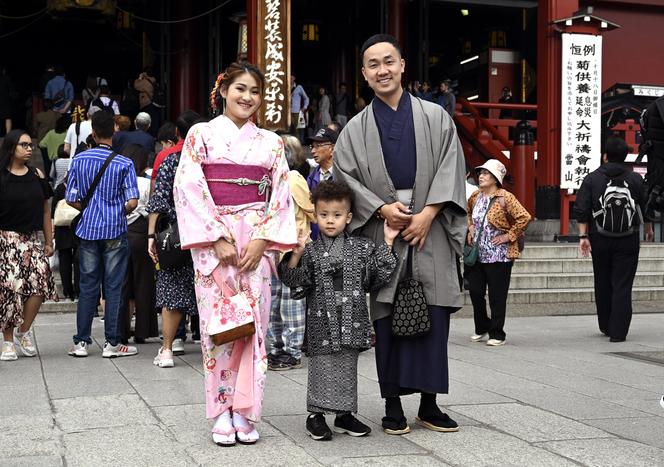


An amendment to Japan's Civil Code, passed by the National Diet on Friday, May 17, established the possibility of joint parental custody over children in the event of divorce. A real step forward for a country attached to sole custody, the decision has disappointed those who were hoping for a more ambitious measure. At the same time, it has aroused strong opposition from those defending victims of abuse.
"There's nothing to celebrate," and the legislation is only "a starting point that other nations reached years ago," lamented Scott McIntyre, an Australian who has been separated from his children since 2019. He spent two months in prison for entering his in-laws' home with the hope of catching a glimpse of them.
Scheduled to go into effect in 2026, the amendment gives divorced parents the option of choosing between sole and joint custody. Parents opting for joint parental custody will have the right to see their children and decide together on important events such as surgery, schooling, passport applications or moving.
If the couple cannot agree on a choice between the two options or if there are suspicions of abuse or violence on the part of one of the parents, it will be up to the family court to decide in the "best interest of the child."
The revision also includes measures against unpaid alimony. Today, only 28% of single mothers and 8.7% of single fathers receive alimony payments determined in divorce proceedings. "With this amendment, we want to establish a framework that enables both parents to assume their responsibilities," explained Justice Minister Ryuji Koizumi.
"Currently, after a divorce in Japan, two-thirds of the children involved lose contact with the parent who does not have parental custody," said François Roussel, consular representative for French citizens abroad. He is in favor of this reform which he expects will "ensure that links are better preserved between children and parents, even after a divorce." Takao Tanase, a lawyer specializing in divorce cases, considers the legislation "disappointing" because of its vagueness on the division of responsibilities. For the lawyer, it risks creating "joint custody in name only."
According to the latest government data, nearly 95,000 divorces were pronounced in 2022, affecting 161,902 minors, twice as many as in 1950. Under the current framework, which dates back to 1898, only one divorced parent can obtain custody over the children. This right almost always goes to the person with whom the children are residing at the time of the divorce. In 86% of cases in 2022, this was the mother.
You have 51.26% of this article left to read. The rest is for subscribers only.
